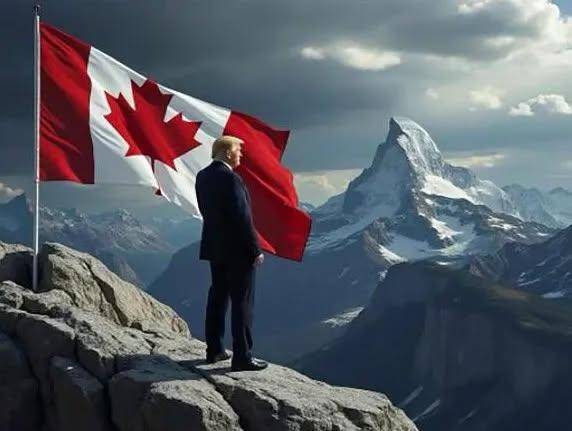Trump’s Bold Proposal: Canada as the 51st State?
In a surprising and controversial statement, former U.S. President Donald Trump has suggested that Canada consider becoming the 51st state of the United States. This proposal, delivered with characteristic bravado, includes promises of transformative benefits for Canadians: massive tax cuts, unparalleled economic growth, and unmatched military protection. While the suggestion has sparked intrigue and debate, it also raises significant questions about its feasibility and implications.
A 60%+ Tax Reduction.
Trump claims that Canadians are overburdened by excessive taxes, which he argues hinder economic potential and reduce the quality of life. In his vision of Canada as a U.S. state, taxes would be slashed by more than 60%, leaving Canadians with significantly higher disposable income. He suggests that these tax savings would stimulate consumer spending and enhance overall economic activity.
This promise is likely to resonate with Canadians frustrated by their current tax system, especially given the rising cost of living. However, skeptics question whether such a dramatic reduction in taxes is realistic or sustainable. The U.S. federal tax system, while often considered more favorable than Canada’s, comes with its own complexities and challenges.
Business Boom on the Horizon
One of Trump’s more ambitious claims is that Canadian businesses would “immediately double in size†as a result of joining the U.S. economy. While this assertion lacks detailed explanation, it presumably hinges on increased market access, reduced regulatory barriers, and integration into one of the world’s largest consumer markets.
Proponents of this idea might point to the benefits of a unified North American market, including enhanced trade opportunities and economic collaboration. However, critics argue that the U.S. business environment, while expansive, is highly competitive and could pose challenges for Canadian companies accustomed to a different regulatory framework.
Unmatched Military Protection.
Another cornerstone of Trump’s proposal is enhanced military security. He promises that Canada, as a U.S. state, would receive military protection “like no other country anywhere in the world.†This assurance might appeal to Canadians concerned about global instability and national security. As part of the United States, Canada would benefit from the resources and capabilities of the world’s most powerful military.
Wayne Gretzky: A New Political Figure?
Adding a unique twist to his pitch, Trump has encouraged Canadians to consider NHL legend Wayne Gretzky for political leadership. He has suggested Gretzky run as Canada’s Prime Minister—or "Governor," in the context of U.S. statehood. While Gretzky has shown no interest in politics, Trump’s endorsement adds a populist appeal to his proposal, possibly aiming to energize Canadians disillusioned with current leadership.
A Divisive Proposal in a Tumultuous Time
This proposal comes as Canadian Prime Minister Justin Trudeau faces mounting criticism. Struggling with economic challenges and declining approval ratings, Trudeau has become a focal point for dissatisfaction among Canadians. Recent polls suggest a lead for the opposition Conservative Party, reflecting a growing appetite for change.
Yet, Trump’s proposal raises profound questions about national identity, sovereignty, and governance. While some Canadians may be enticed by the promises of lower taxes and economic growth, others are likely to view the idea of statehood as an affront to Canada’s independence and cultural identity.
The Road Ahead
Trump’s bold suggestion has reignited debates about Canada’s future. While intriguing, the prospect of becoming the 51st state is fraught with complexities and challenges. Will Canadians embrace such a dramatic shift, or will they reject it as a far-fetched political gambit? As this story unfolds, one thing is clear: Trump’s proposal has left a lasting impression and fueled discussions about Canada’s role in the global landscape.


